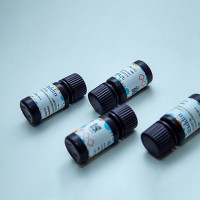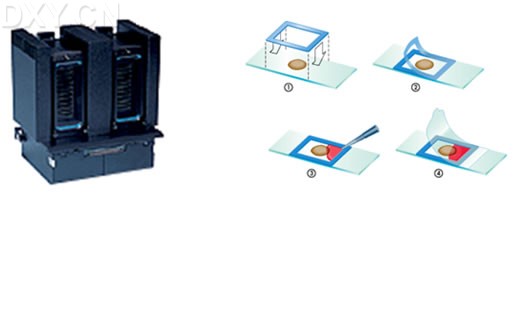【分享】《Nature Medicine》(2008.4.13):一项新的PCR技术COLD-PCR较常规PCR在基因突变的检测等方面显现出更多优势
丁香园论坛
1634
Nat Med杂志于 2008.4.13在线发表了一篇文章,该文章报道了一种新的PCR技术 COLD-PCR 可补足常规PCR在检测DNA低水平突变中的不足,将革命性的转变常规PCR在遗传病检测,癌症,感染性疾病,产前诊断中的能力。
Replacing PCR with COLD-PCR enriches variant DNA sequences and redefines the sensitivity of genetic testing.
Li J, Wang L, Mamon H, Kulke MH, Berbeco R, Makrigiorgos GM.
PCR is widely employed as the initial DNA amplification step for genetic testing. However, a key limitation of PCR-based methods is the inability to selectively amplify low levels of mutations in a wild-type background. As a result, downstream assays are limited in their ability to identify subtle genetic changes that can have a profound impact in clinical decision-making and outcome. Here we describe co-amplification at lower denaturation temperature PCR (COLD-PCR), a novel form of PCR that amplifies minority alleles selectively from mixtures of wild-type and mutation-containing sequences irrespective of the mutation type or position on the sequence. We replaced regular PCR with COLD-PCR before sequencing or genotyping assays to improve mutation detection sensitivity by up to 100-fold and identified new mutations in the genes encoding p53, KRAS and epidermal growth factor in heterogeneous cancer samples that had been missed by the currently used methods. For clinically relevant microdeletions, COLD-PCR enabled exclusive amplification and isolation of the mutants. COLD-PCR will transform the capabilities of PCR-based genetic testing, including applications in cancer, infectious diseases and prenatal identification of fetal alleles in maternal blood.
全文链接:http://www.nature.com/nm/journal/vaop/ncurrent/abs/nm1708.html;jsessionid=DEC956E4A2EDD4BB2E583AC2E8A1D158
希望该PCR技术进展能对正在做、即将做及将来做基因方面的战友有所帮助。
Replacing PCR with COLD-PCR enriches variant DNA sequences and redefines the sensitivity of genetic testing.
Li J, Wang L, Mamon H, Kulke MH, Berbeco R, Makrigiorgos GM.
PCR is widely employed as the initial DNA amplification step for genetic testing. However, a key limitation of PCR-based methods is the inability to selectively amplify low levels of mutations in a wild-type background. As a result, downstream assays are limited in their ability to identify subtle genetic changes that can have a profound impact in clinical decision-making and outcome. Here we describe co-amplification at lower denaturation temperature PCR (COLD-PCR), a novel form of PCR that amplifies minority alleles selectively from mixtures of wild-type and mutation-containing sequences irrespective of the mutation type or position on the sequence. We replaced regular PCR with COLD-PCR before sequencing or genotyping assays to improve mutation detection sensitivity by up to 100-fold and identified new mutations in the genes encoding p53, KRAS and epidermal growth factor in heterogeneous cancer samples that had been missed by the currently used methods. For clinically relevant microdeletions, COLD-PCR enabled exclusive amplification and isolation of the mutants. COLD-PCR will transform the capabilities of PCR-based genetic testing, including applications in cancer, infectious diseases and prenatal identification of fetal alleles in maternal blood.
全文链接:http://www.nature.com/nm/journal/vaop/ncurrent/abs/nm1708.html;jsessionid=DEC956E4A2EDD4BB2E583AC2E8A1D158
希望该PCR技术进展能对正在做、即将做及将来做基因方面的战友有所帮助。










